Musical Encounters
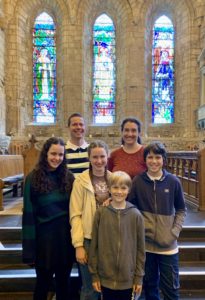 Playing the piano most days in the Dornoch Cathedral, singing in the choir on Sundays, and attending local concerts brings me much joy. On July 29, the day after we arrived for our annual month here, a family from Salzburg, Austria, stopped to say that they were enjoying my music. Salzburg, birthplace of Mozart, is very special to me. In halting German, I told them that I had been an exchange student in nearby Vöcklabruck in 1965, and had visited their city again in 2015. The family who hosted me ran the Schmid Gasthaus, where I had loved listening to daily broadcasts from the Salzburg Festival. I still keep up with two Schmid daughters. I visited Christl in Vienna in 2015 and Edith in Paris last year. This year in Dornoch, Nora Grössenberger. shown here in a yellow jacket with her family, played La Styrienne by Friedrich Burgmüller, a waltz for a girl in Styria, the southern province of Austria, the home of my sister-in-law Elisabeth.
Playing the piano most days in the Dornoch Cathedral, singing in the choir on Sundays, and attending local concerts brings me much joy. On July 29, the day after we arrived for our annual month here, a family from Salzburg, Austria, stopped to say that they were enjoying my music. Salzburg, birthplace of Mozart, is very special to me. In halting German, I told them that I had been an exchange student in nearby Vöcklabruck in 1965, and had visited their city again in 2015. The family who hosted me ran the Schmid Gasthaus, where I had loved listening to daily broadcasts from the Salzburg Festival. I still keep up with two Schmid daughters. I visited Christl in Vienna in 2015 and Edith in Paris last year. This year in Dornoch, Nora Grössenberger. shown here in a yellow jacket with her family, played La Styrienne by Friedrich Burgmüller, a waltz for a girl in Styria, the southern province of Austria, the home of my sister-in-law Elisabeth.
On August 3 the Cathedral presented “Popular Piano Classics” by Robin Colvill. He played twelve pieces in all, including the Ave Maria that Gounod wrote over Bach’s Prelude in C Major, Etude Tristesse by Chopin, a transcription of Grieg’s Concerto in A minor, Carlos Gardel’s tango Una for Cabeza, and Grieg’s In the Hall of the Mountain King. Though he talked almost as much as he played, we enjoyed hearing both familiar and new pieces.
Three days after “Popular Piano Classics,” the Cathedral’s Evensong could have been called “German Choral Classics.” The family from Austria would have loved the presentation by the 14-person traveling section of Elikuren Chamber Choir based in Wunstorf, near Hanover, Germany. Steve and I loved hearing the group’s lovely voices singing works that ranged from Baroque to Modern. But we had difficulty understanding the aural announcements of names of the pieces and the composers. The next morning I happened to see two choir members on the street, preparing to continue their tour of Scotland. They were so kind as to send me a complete list of the 14 songs they sang, including these favorites of mine:
Ave verum corpus (Hail True Body)- Wolfgang Amadeus Mozart. This piece was composed for a church choir in Baden bei Wien, a place I visited with Joel and Elisabeth in 2015. I have sung it with several choirs over the years.
Ehre sei dem Vater (Honored Be the Father)- Felix Mendelssohn Bartholdy
Heilig ist der Herr (Holy is the Lord) – Franz Schubert
Wie schön leuchtet der Morgenstern (How Beautiful the Morning Star) – Bach
Jesu, meine Freude (1-19) & (447-465) [Jesu, Joy of Man’s Desiring] – Bach. I have played Myra Hess’s piano arrangement of this piece since I was 16.
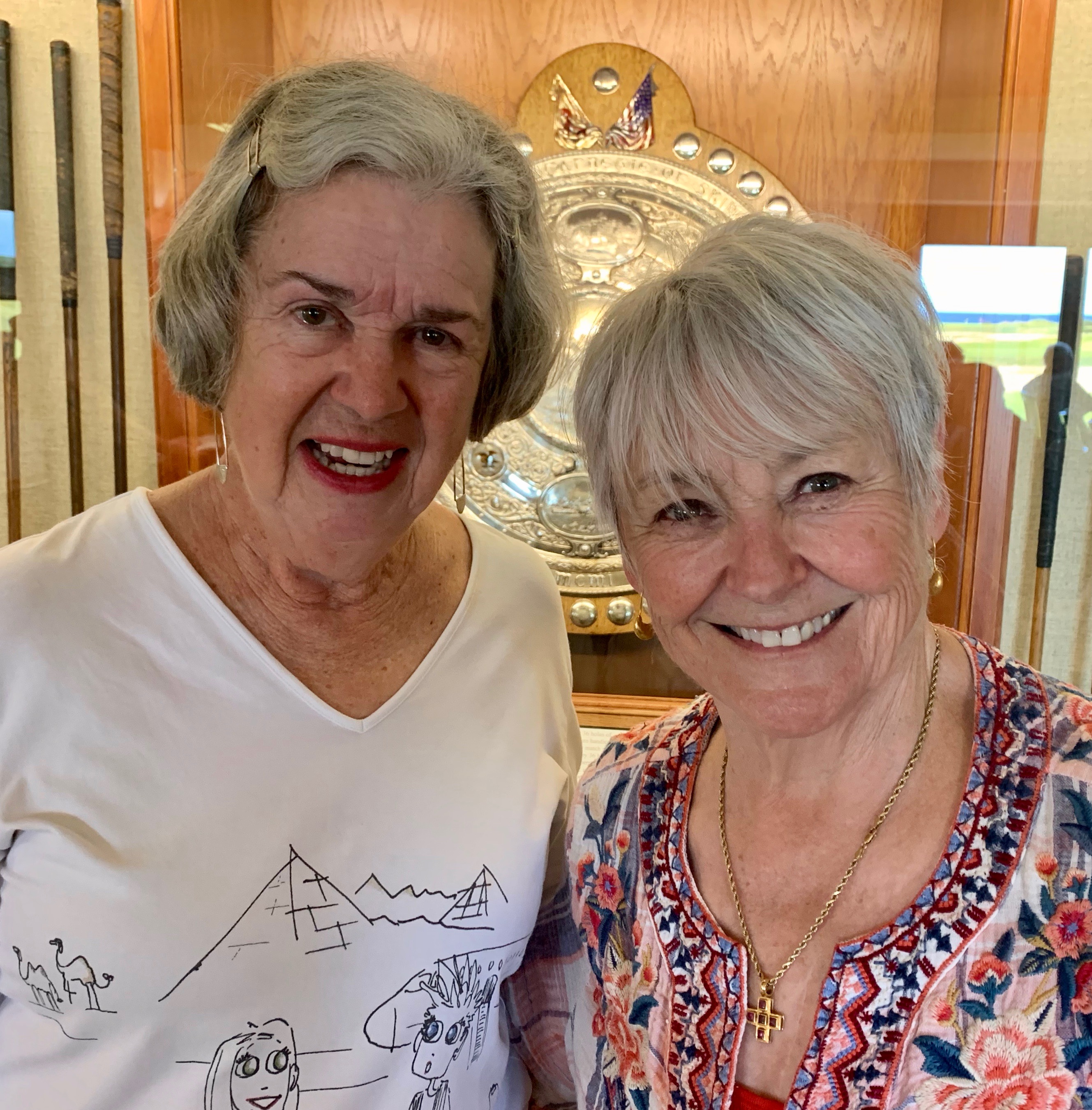 On August 14, I accompanied my cousin Maxann, who sang Amazing Grace and Highland Cathedral for Allene and her cousin Page. The next day Page and Allene invited others to come hear her lovely voice. Many out-of-town visitors stopped to listen, too. Steve pointed out that Maxann has sung at almost all our family weddings and funerals for the last 50 years. Now she and I are prepared for the Family Talent Show at her house in Charlotte NC next Christmas.
On August 14, I accompanied my cousin Maxann, who sang Amazing Grace and Highland Cathedral for Allene and her cousin Page. The next day Page and Allene invited others to come hear her lovely voice. Many out-of-town visitors stopped to listen, too. Steve pointed out that Maxann has sung at almost all our family weddings and funerals for the last 50 years. Now she and I are prepared for the Family Talent Show at her house in Charlotte NC next Christmas.
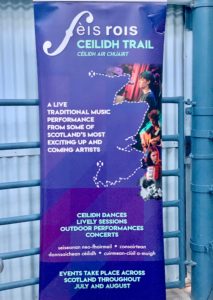 Cousin Jay, who likes to read bulletin boards while waiting in stores, spotted a concert of traditional Scottish music by Feis Rois (pronounced Faish Ross) in Rogart, a mere twenty minutes from Dornoch, that we attended on Friday, August 11. The group was composed of three women and one man. One woman played a piano keyboard and violin; the other two violins–well, really, fiddles. The guy played accordion and guitar, but best of all, had a beautiful voice when he sang in Gaelic. This event was held in a metal building more often used for showing and selling sheep and goats. We sat on high wooden seats and tried to understand the introductions. Almost all of the 70 people present tapped their feet. The music was repetitive, with little variation in volume, but a faithful rendition of Gaelic music heritage.
Cousin Jay, who likes to read bulletin boards while waiting in stores, spotted a concert of traditional Scottish music by Feis Rois (pronounced Faish Ross) in Rogart, a mere twenty minutes from Dornoch, that we attended on Friday, August 11. The group was composed of three women and one man. One woman played a piano keyboard and violin; the other two violins–well, really, fiddles. The guy played accordion and guitar, but best of all, had a beautiful voice when he sang in Gaelic. This event was held in a metal building more often used for showing and selling sheep and goats. We sat on high wooden seats and tried to understand the introductions. Almost all of the 70 people present tapped their feet. The music was repetitive, with little variation in volume, but a faithful rendition of Gaelic music heritage.
The Gaelic music reminded me of the weeklong Scottish dance course I took in St. Andrew’s in 2005, while Steve was playing golf. The course concluded with a Ceilidh (“KAY-lee”) similar to an American square dance. My piano studio theme that fall was Scottish music. Students learned the standard Scottish harmonic progression (I -vi-IV-V) and chose among Amazing Grace, Londonderry Air, My Love is Like a Red, Red Rose, and other favorite songs. Everyone love the Bagpiper at that year’s Fall Recital, but my students weren’t as keen as I was about learning Scottish dancing.
On August 10 two English organists enriched my life with fresh insights. The first was Jonathan from Wimbledon who asked to sing along with my playing. Surely, I thought, the Cathedral has inspired him to think of this hymn:
My life flows on in endless song, above earth’s lamentation.
I catch the sweet, though far-off hymn that hails a new creation.No storm can shake my inmost calm, while to that Rock I’m clinging.
Since Love is lord of heav’n and earth, how can I keep from singing?
Instead, he preferred other hymns, and experimented with the acoustics in different parts of the Cathedral. He was literally called to the Altar, shown behind him, the direction in which his strong, musical voice sounded its best.
The organ was locked, but later that afternoon, Alastair Hotchkiss found that he liked the sound of the Cathedral’s “Boston” piano, an upright by Steinway. He played his own arrangement of Make Me a Channel of Your Peace, that he had prepared for a wedding. I captured a video of it, but his arrangement has not yet been copyrighted. I used to teach the traditional tune for the Prayer of St. Francis to my Cherrydale Children’s Choir in Arlington VA. I am now inspired to sing it more often!
Make me a channel of your peaceWhere there is hatred let me bring your loveWhere there is injury, your pardon LordAnd where there is doubt true faith in YouRefrain (after each verse): Oh, Master grant that I may never seekSo much to be consoled as to consoleTo be understood as to understandTo be loved as to love with all my soulMake me a channel of your peaceIt is in pardoning that we are pardonedIt is in giving to all men that we receiveAnd in dying that we are born to eternal lifeFinale: Make me a channel of your peaceWhere there’s despair in life let me bring hopeWhere there is darkness only lightAnd where there’s sadness ever joy
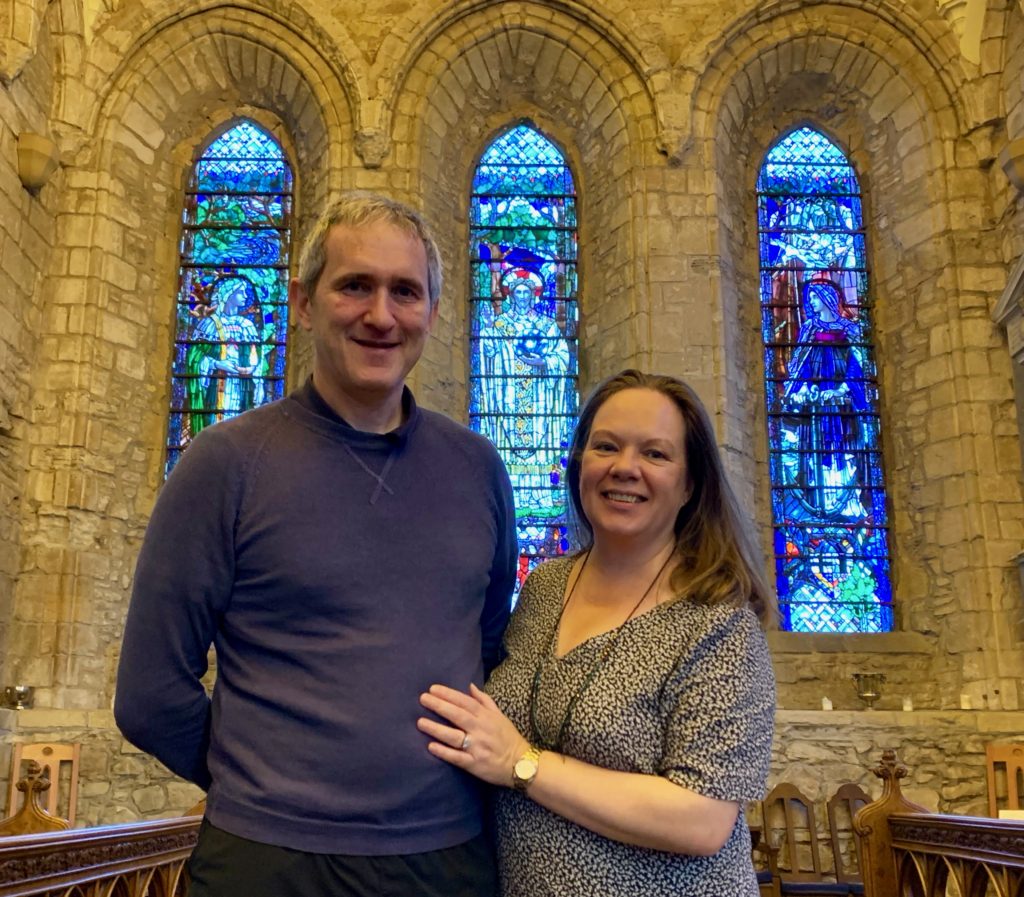 Between visits with the two organists, came a couple who were also interested in music: Emma and John MacPherson from Belfast, Ireland. I had just finished reading Trespasses, a 2022 novel by Louise Kennedy about the Troubles in 1970s Belfast. When I told them that this book had educated me about the conflicts between Catholics and Protestants, Emma told me that she is Catholic and John, a “Prod.” John was born and raised in Tain, not far from Dornoch. They believed that Belfast has become a more tranquil city in the last thirty years and that their family has thrived there. Emma took a turn on the piano bench, playing by memory The Town I Loved So Well by Phil Coulter, giving me visual and aural proof that conflicts can be resolved and happiness can be restored.
Between visits with the two organists, came a couple who were also interested in music: Emma and John MacPherson from Belfast, Ireland. I had just finished reading Trespasses, a 2022 novel by Louise Kennedy about the Troubles in 1970s Belfast. When I told them that this book had educated me about the conflicts between Catholics and Protestants, Emma told me that she is Catholic and John, a “Prod.” John was born and raised in Tain, not far from Dornoch. They believed that Belfast has become a more tranquil city in the last thirty years and that their family has thrived there. Emma took a turn on the piano bench, playing by memory The Town I Loved So Well by Phil Coulter, giving me visual and aural proof that conflicts can be resolved and happiness can be restored.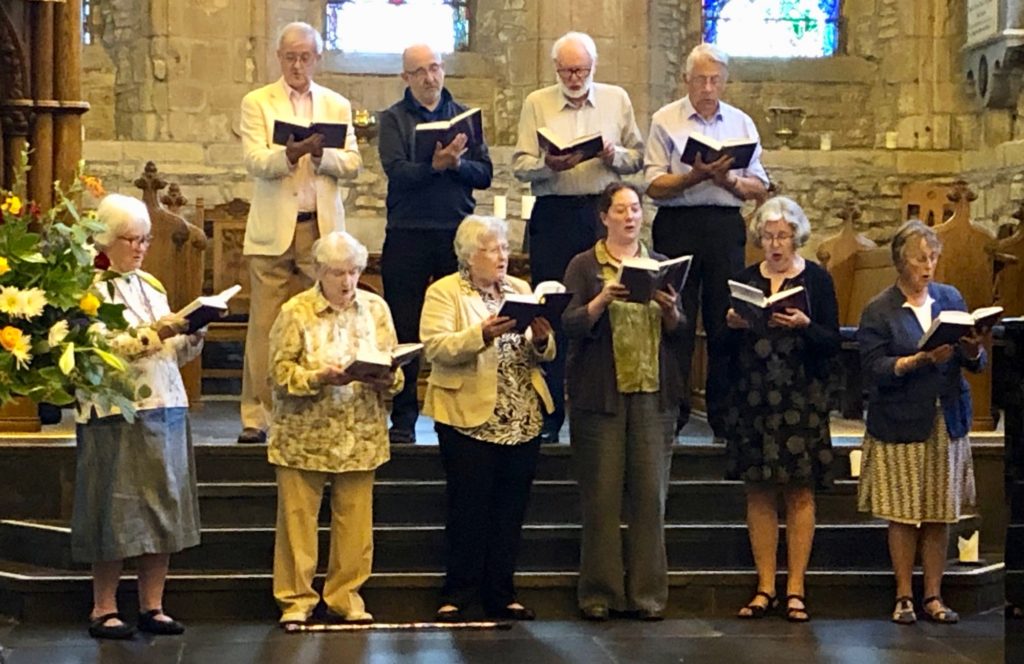 On August 20, I sang with the Cathedral Choir for the last time until next year. As I looked up at the three windows dedicated to Andrew Carnegie, I realized that this year’s encounters in this Cathedral added up to the kind of religious epiphany I had at St. Thomas Kirche in Leipzig in 2001. Though always a doubter, I felt then, as I did now, the compelling truth of a large community of faith in the world to which I am glad to belong.
On August 20, I sang with the Cathedral Choir for the last time until next year. As I looked up at the three windows dedicated to Andrew Carnegie, I realized that this year’s encounters in this Cathedral added up to the kind of religious epiphany I had at St. Thomas Kirche in Leipzig in 2001. Though always a doubter, I felt then, as I did now, the compelling truth of a large community of faith in the world to which I am glad to belong.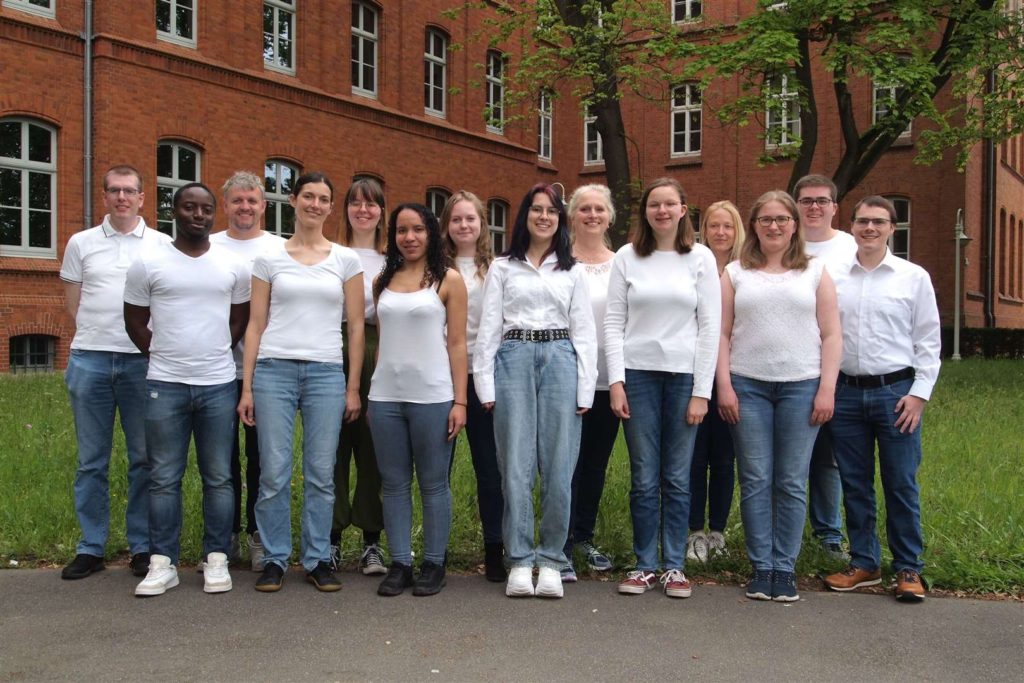
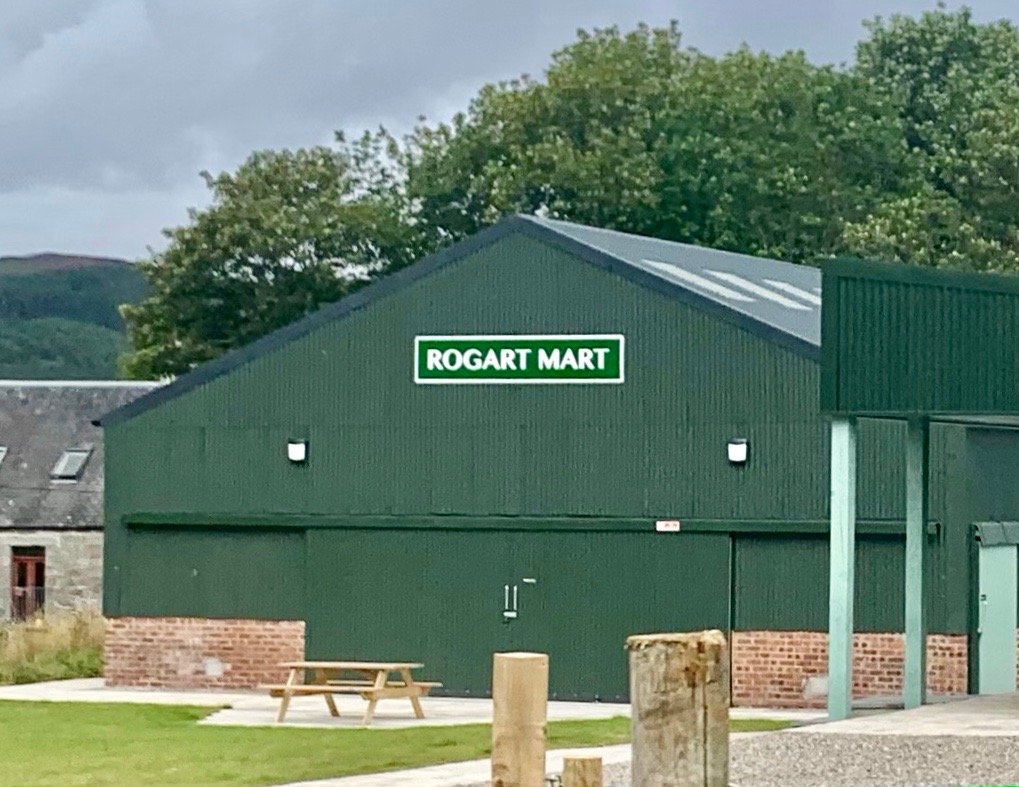
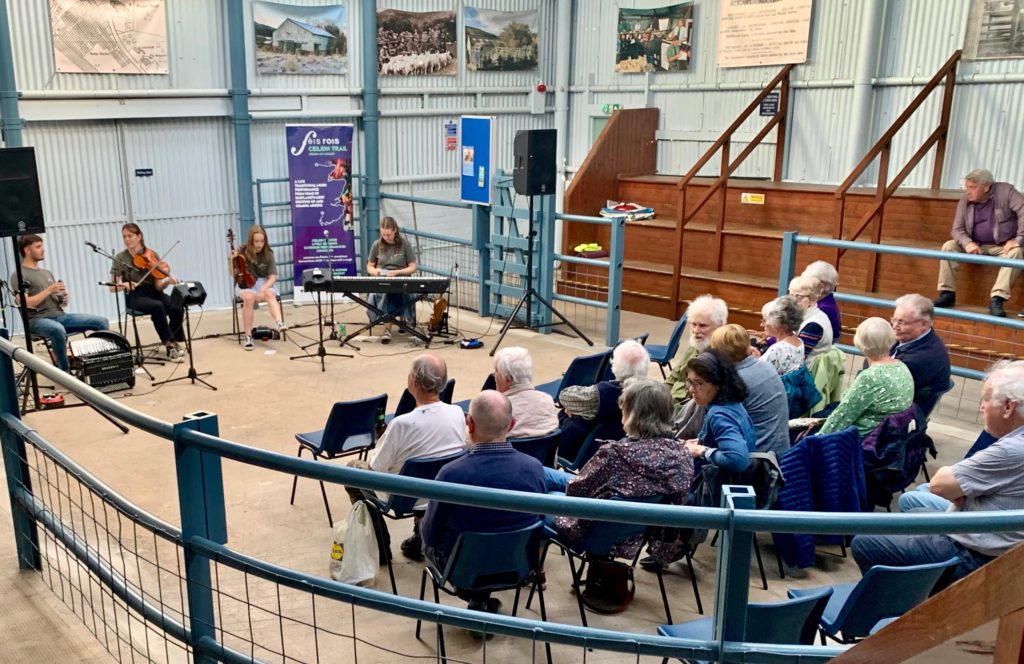
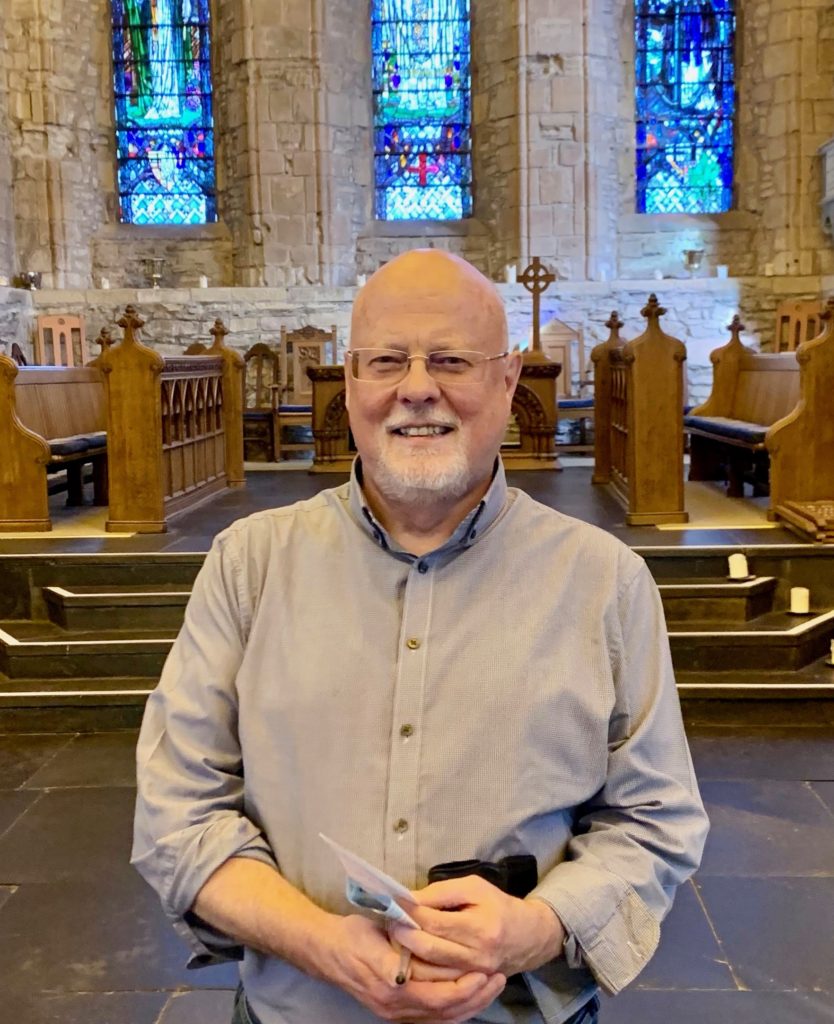
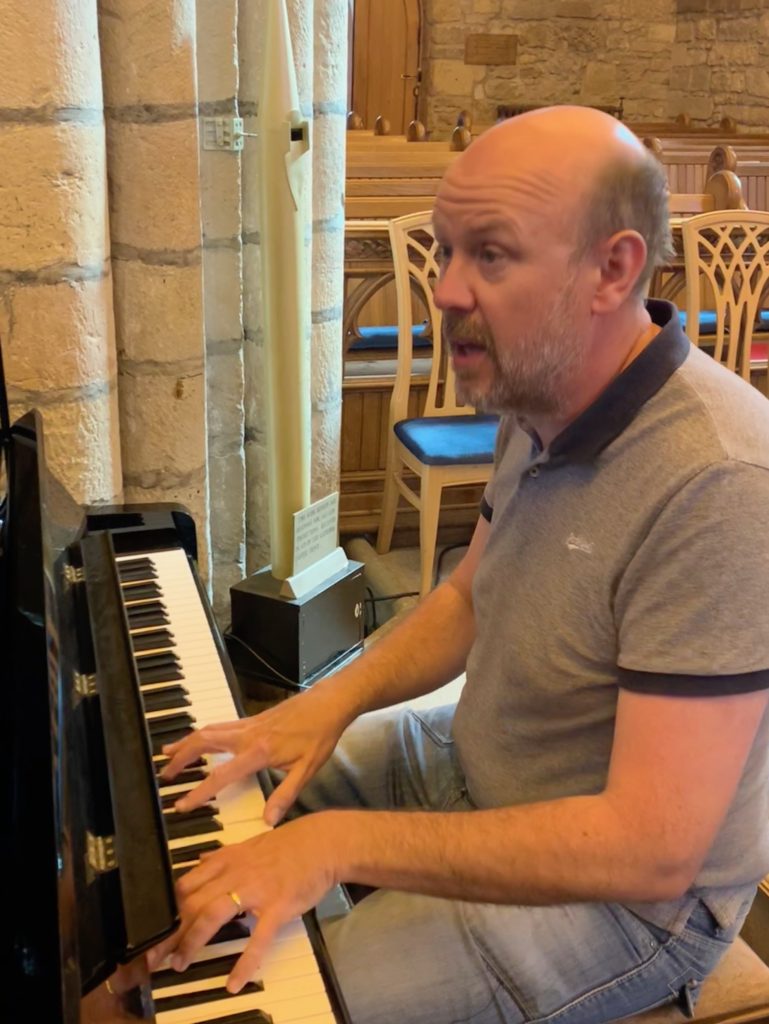
Leave a Reply